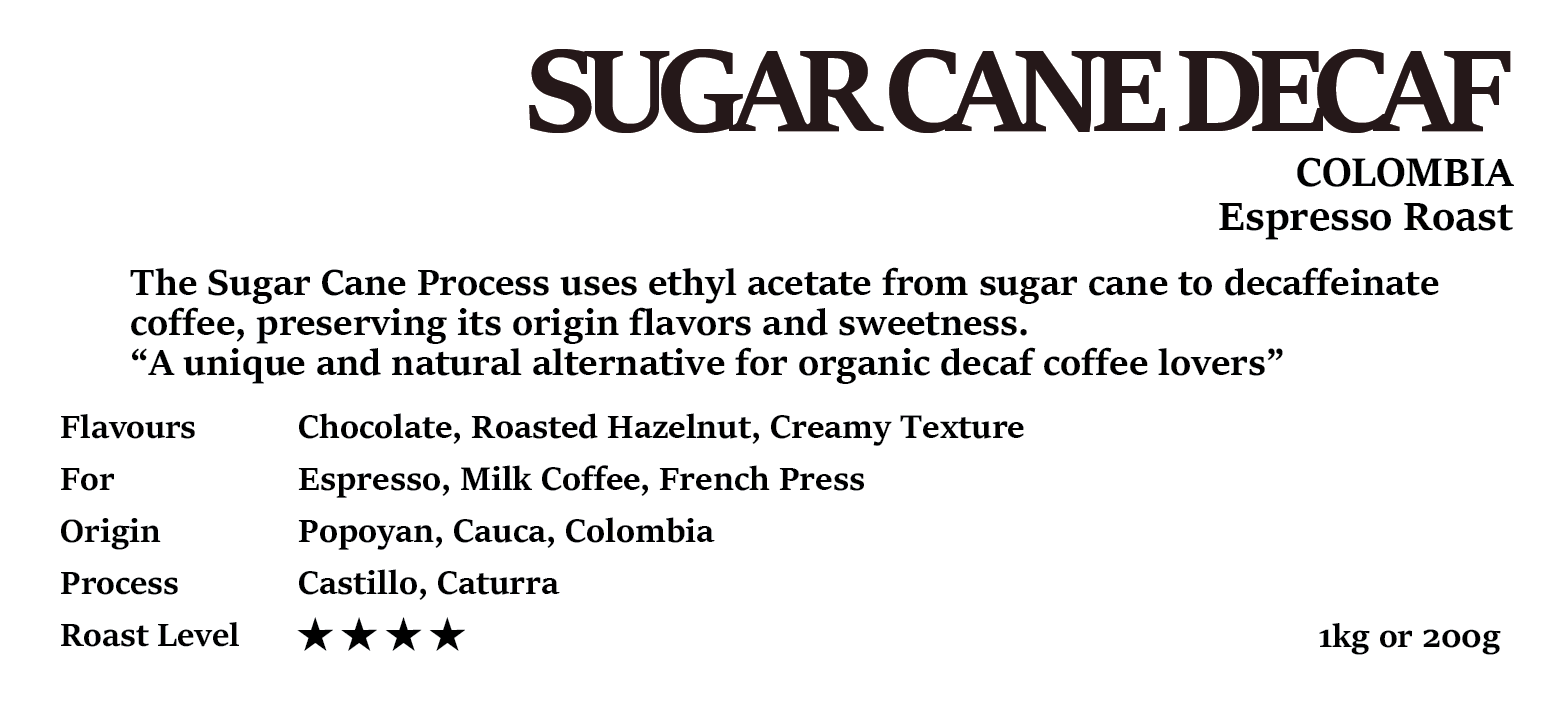
The sugarcane decaf process-also known as the ethyl acetate (EA) or natural decaf process-is a method of removing caffeine from coffee beans using a natural solvent derived from sugarcane
How It Works
• Steaming: Green (unroasted) coffee beans are first steamed to open their pores, making caffeine extraction easier.
• Soaking in EA Solution: The beans are then soaked in a solution of water and ethyl acetate. EA, produced from sugarcane, selectively binds to caffeine molecules and removes them from the beans.
• Repeated Extraction: This soaking process is repeated several times with fresh EA solution to ensure that 97–99% of the caffeine is removed.
• Rinsing and Steaming: After decaffeination, the beans are rinsed and steamed again to remove any residual EA.
• Drying and Polishing: Finally, the beans are dried, polished, and packaged for roasting
The sugar cane decaf process is considered a natural and eco-friendly method of decaffeination, as it uses a renewable and biodegradable solvent that does not affect the flavor or quality of the coffee
Choose options
